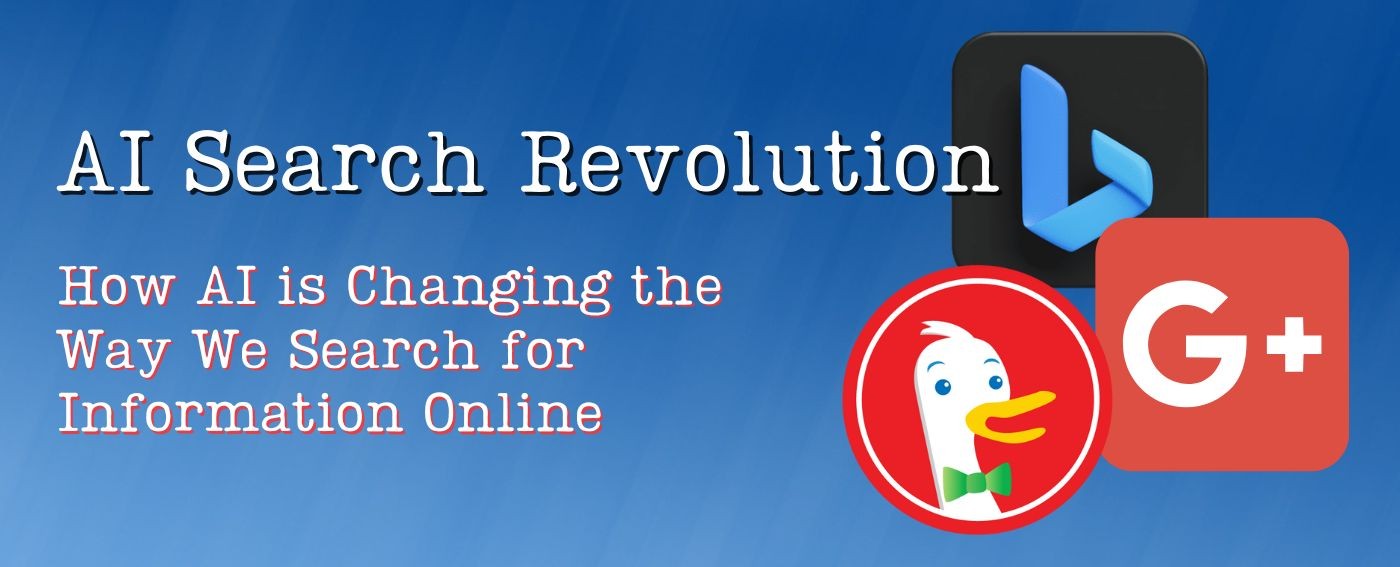AI Search Revolution

How AI is Changing the Way We Search for Information Online
Technology is evolving, and as a result, the way we search for information on the internet is also evolving. The advent of artificial intelligence (AI) has brought about significant changes in how we interact with search engines and access the information we need. In this article, we will discuss how AI is revolutionizing the search experience and what we can expect in the near future.
Personalized Search Results
One of the most significant ways AI is changing search is through personalized search results. With AI, search engines can learn more about a user's preferences, interests, and behavior, providing search results tailored to their needs. This means that when someone conducts a search, they will receive results that are relevant to them, based on their past search history and online activity.
Voice Recognition
Voice recognition is already a widely used feature on many devices, and AI is making it even more accessible and precise. With voice recognition, users can search for information using natural language, without having to type in a query. As AI continues to improve, voice recognition technology will become even more accurate and efficient, making it a valuable feature for those who prefer hands-free searching.
Visual Search
AI is also changing search with the introduction of visual search. This feature allows users to search for images and other visual content by uploading an image or taking a picture of an object. AI algorithms can identify the object and provide search results related to it, making it particularly useful for e-commerce websites where users can search for products by uploading images.
Natural Language Processing
AI is improving natural language processing, allowing search engines to better understand and respond to users' search queries. With this feature, search engines can comprehend the intent behind a user's search query and provide more accurate results. This is particularly helpful for complex search queries that require additional context to deliver relevant results.
Conclusion
AI is transforming the way we search for information on the internet. Personalized search results, voice recognition, visual search, and
natural language processing are just a few of the ways that AI is changing the search experience. As a marketing professional, it's
essential to stay informed about these changes and adapt your strategies to ensure your content is easily discoverable by users utilizing
these new search features.
In terms of website pages being listed as they currently are in Google, it's likely that traditional web pages will still be a fundamental part of Google's search index. However, with the increasing prominence of AI, other types of content might gain importance. For instance, AI-generated or curated content, voice interactions, visual search results, and rich media formats could become more prevalent.
Moreover, Google has been focusing on concepts like structured data, knowledge graphs, and featured snippets, which provide instant answers to user queries. These features are likely to become more sophisticated as AI progresses, allowing users to access specific information directly from search results without even visiting a website.
It's worth noting that the exact mechanisms and algorithms that Google employs are subject to continuous development and improvement. As AI advances, it is expected to enhance the search experience by providing more accurate and relevant information to users while adapting to their evolving needs and preferences.



